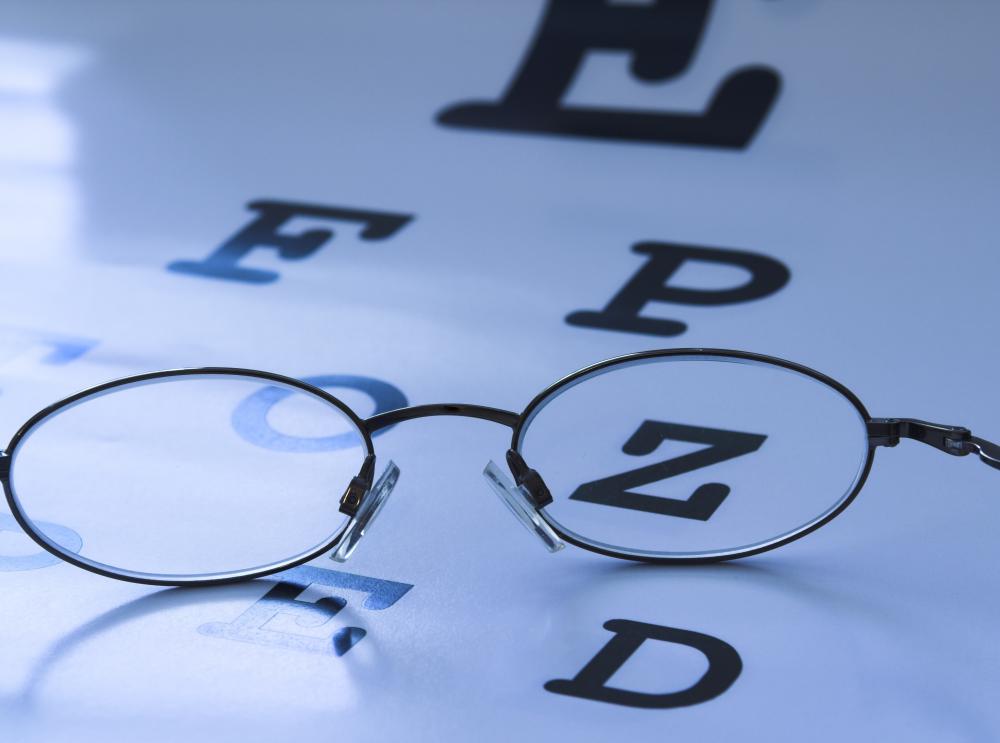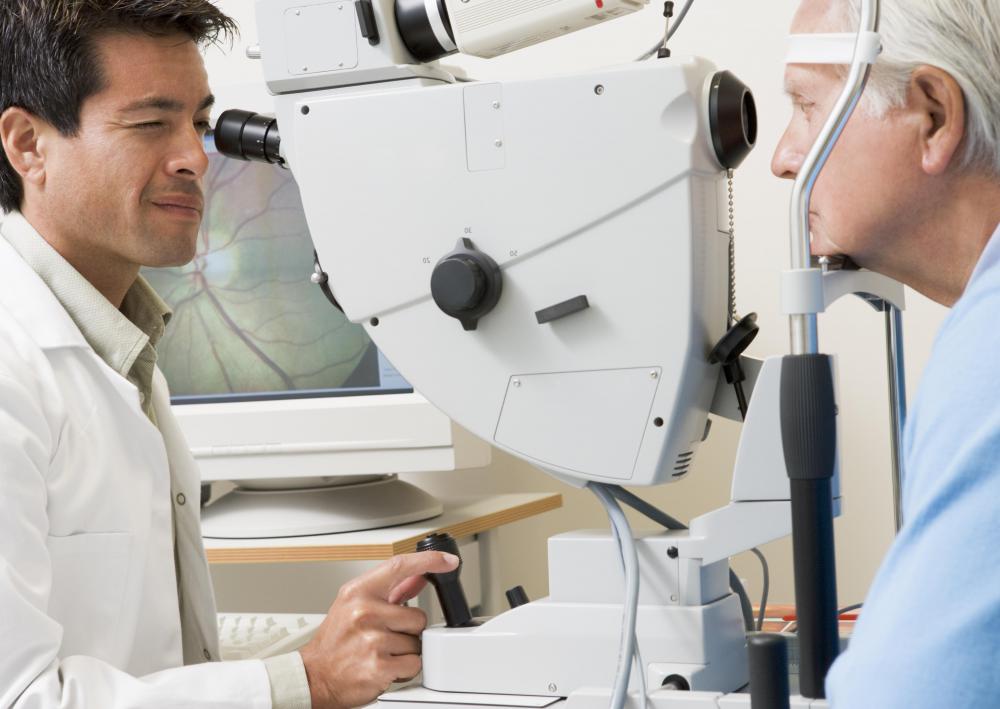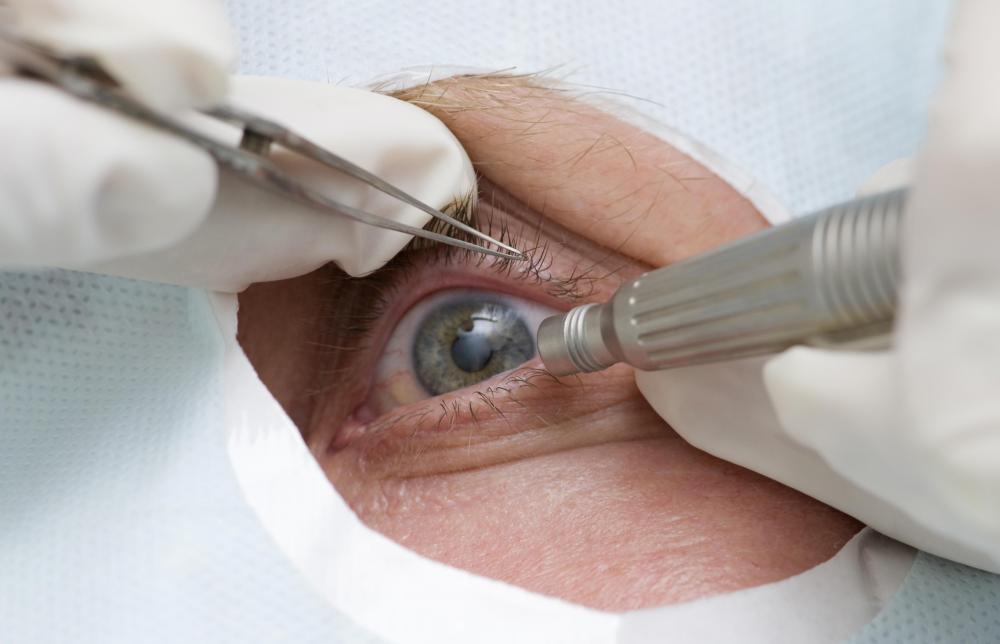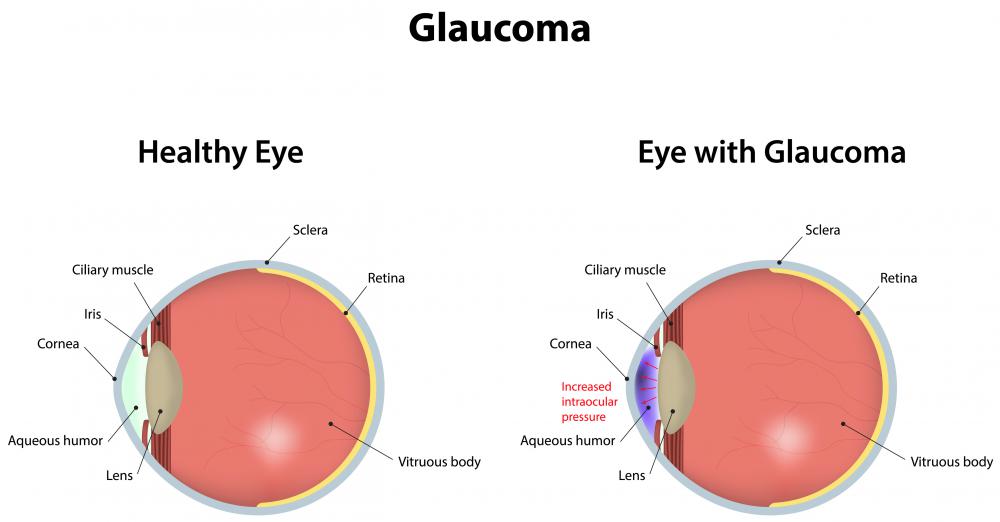At TheHealthBoard, we're committed to delivering accurate, trustworthy information. Our expert-authored content is rigorously fact-checked and sourced from credible authorities. Discover how we uphold the highest standards in providing you with reliable knowledge.
What is an Oculist?
An oculist is the general name given to a medical professional that specializes in caring for the eyes. An oculist may be strictly an optometrist or may be an ophthalmologist depending on their training. An oculist trained to identify and treat diseases and defects of the eyes as they pertain to a medical condition is an ophthalmologist. An oculist trained to identify defects of the eye that affect vision and prescribe corrective lenses to correct vision problems is an optometrist.
Though an oculist is trained to administer eye exams, their specific medical duties vary depending upon their area of training and their specialty. While an optometrist specializes only in identifying defects in vision and prescribing corrective lenses, an ophthalmologist specializes in all areas of eye health. An optometrist, for example, would not perform eye surgery or treat an eye injury, while an ophthalmologist would.

Though the areas in which an oculist may specialize are optometry and ophthalmology, an ophthalmologist may further specialize in pediatric ophthalmology, ocular oncology, corneal disease and so forth. The major difference between oculist specialties is the training. An optometrist earns a doctorate in optometry by studying four years of optometry at a specialized school and sometimes may be required to study only an additional one to two years. An ophthalmologist is a medical doctor who has served a surgical internship after completing medical school. Thus, ophthalmologists are qualified to perform surgery, write prescriptions for all medication, and are often classified as surgeons rather than just doctors.

Though there can be a vast difference in the training and education an oculist receives, there are some similarities. The similarities amongst most oculists include their specialized study of the eye, their trained knowledge to identify defects that affect vision, and their ability to diagnose and treat glaucoma and certain eye infections.
An individual seeking help identifying a problem with the eye seeks the services of an oculist. If the problem is vision related, they may elect to visit an optometrist. However, if the problem is medical in nature or is an emergency, they would want to see an ophthalmologist.
AS FEATURED ON:
AS FEATURED ON:



















Discussion Comments
what can they do about AMD?
Is a person actually better served visiting an optometrist as opposed to an ophthalmologist for glasses or contact lenses? The ophthalmologists assistants do all the vision testing and prescribing anyway. I never saw the doctor on my last vision test at all and it was the optician who decided which lenses or glasses would be best for me. Do optometrists delegate this to assistants as well?
Oculist definition is fine until the differentiation between Optometrist and Ophthalmologist. (See: Wise Geek's definition of "optometrist")
Optometrist diagnose and treat most medical disorders of the eye, including glaucoma. There are a few states which limit or restrict certain treatments, but they are rare.
Optometrists are usually the first line of medical defense in Ocular disease and disorders and provide the majority of ocular health care in the USA.-M. J. Maynard, O.D.
This is absolutely the best article I have read of eye vision! Keep up the good work!
Post your comments